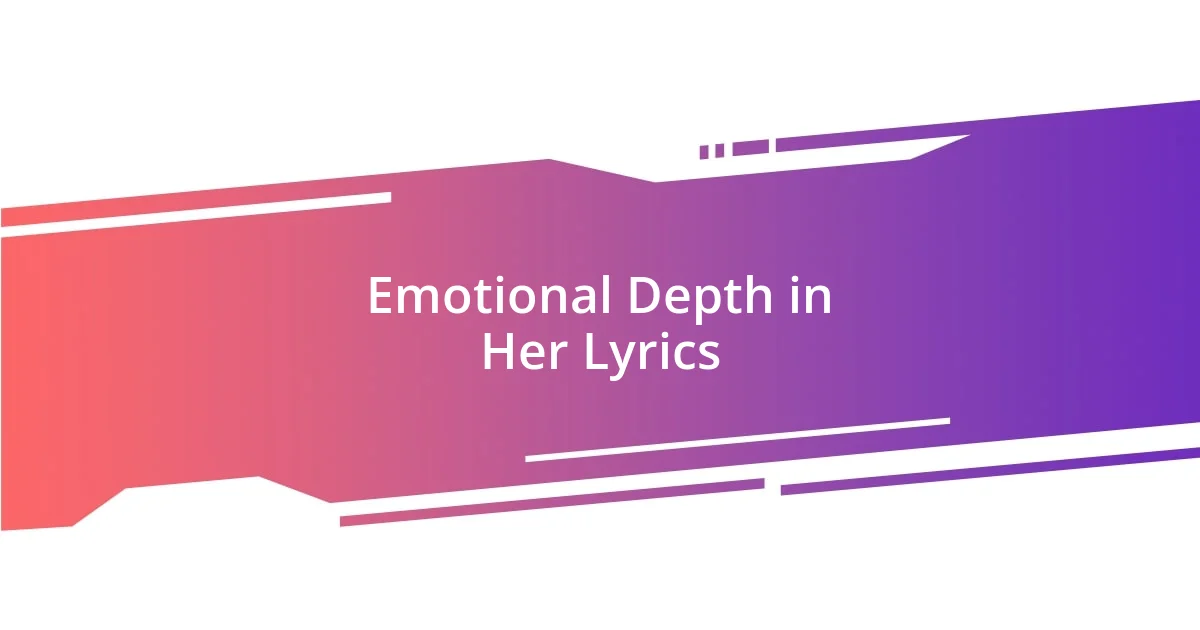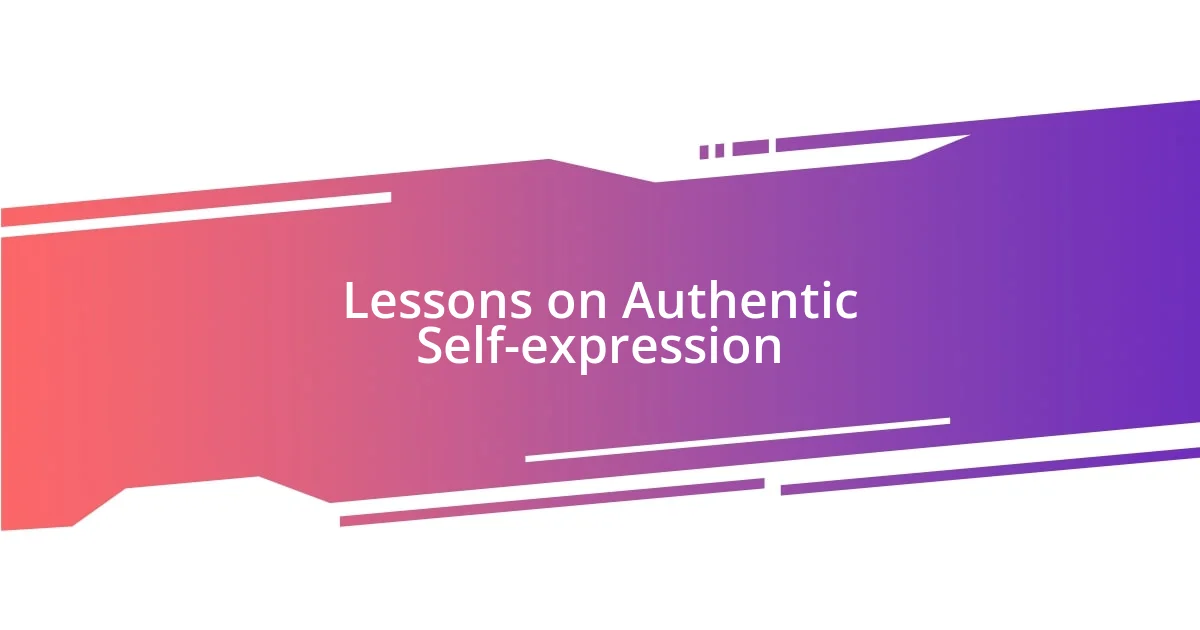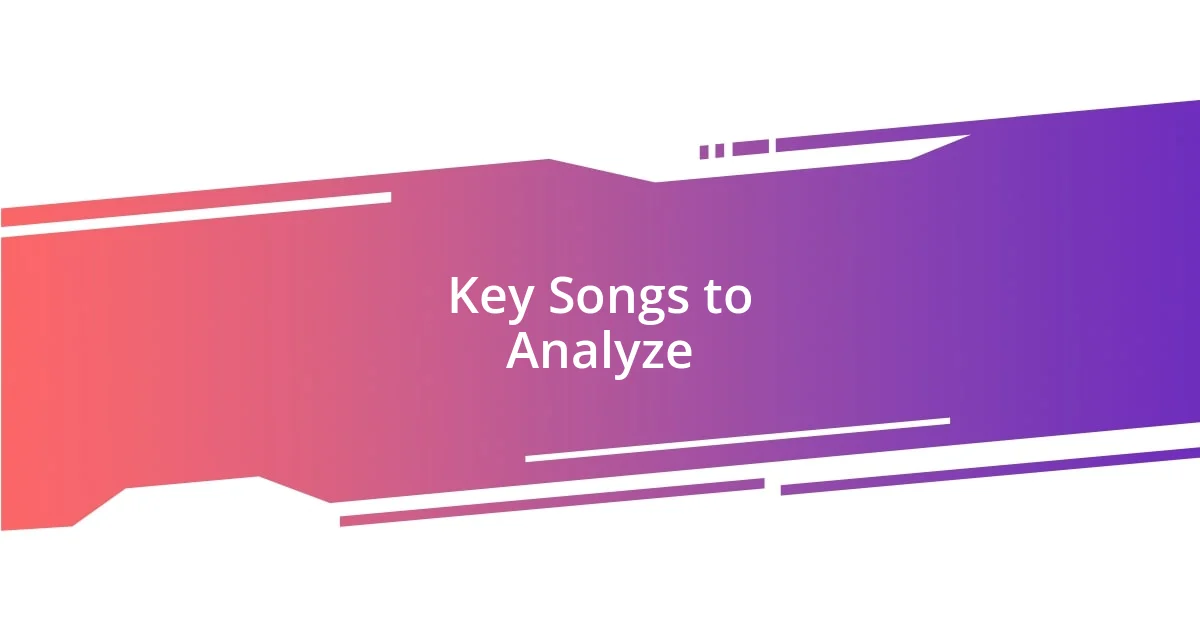Key takeaways:
- Billie Holiday’s music captures profound human emotions, addressing themes of love, loss, and racial injustice, making her work timeless and universally relatable.
- Her unique vocal style prioritizes emotional authenticity over technical skill, enabling her to connect deeply with listeners through subtle nuances and personal expression.
- Key songs like “Strange Fruit,” “Don’t Explain,” and “I Wish I Knew How It Would Feel to Be Free” exemplify her ability to translate personal pain into powerful art, fostering connection and self-reflection in her audience.

Understanding Billie Holiday’s Influence
Billie Holiday’s music resonates deeply with listeners because she infused every note with her own pain and joy. I still remember the first time I heard “Strange Fruit.” It was like a gut punch; the raw emotion in her voice triggered a visceral response in me. How many artists can truly capture the complexities of human experience like she did?
Her influence extends beyond jazz, impacting multiple genres and inspiring countless musicians. I often find myself humming her melodies when I’m going through tough times. They serve as a reminder that vulnerability can be powerful; it creates a space for connection. Have you ever noticed how songs can transform your mood? Holiday’s ability to wield her struggles into powerful art is nothing short of magical.
When we analyze her artistry, we see how she tackled themes of love, loss, and racial injustice. I believe literature and art often go hand in hand, and from my perspective, her work stands as a poignant narrative of her time. Isn’t it interesting how music can have such an enduring legacy? Her storytelling in song continues to resonate, reminding us that the human experience is universal and timeless.

Exploring Holiday’s Unique Vocal Style
Holiday’s vocal style is a masterclass in emotional delivery. I find myself captivated by her distinctive phrasing, where she bends notes in unexpected ways, adding layers of meaning. Each time I listen to “Don’t Explain,” I can feel the heartache in her voice, making the lyrics resonate even more profoundly. It’s as though she’s inviting us into her inner world, revealing hard truths and vulnerabilities through her music.
What truly sets her apart, in my opinion, is her innate ability to convey deep emotion through subtle nuances. When I hear her pause or slightly alter a rhythm, it feels like she’s sharing an intimate secret. This organic quality reminds me of conversations with close friends—those moments of pause that speak volumes without words. Listening to her sing feels like participating in a compelling dialogue about the human condition.
In contrast to many vocalists who focus on technical proficiency, Holiday prioritized emotional authenticity. I often compare her style to that of modern artists, and I can’t help but appreciate how she carved out a unique space in music history. Her voice, with its imperfections, connects us to the rawness of her experience, bridging the gap between artist and listener.
| Characteristic | Billie Holiday’s Vocal Style |
|---|---|
| Emotional Delivery | Exceptional, conveying deep feelings |
| Phrasing | Unique, bending notes for added meaning |
| Authenticity | Focus on genuine emotion over technical skill |

Emotional Depth in Her Lyrics
The emotional depth of Billie Holiday’s lyrics is something that I have come to appreciate through countless listening sessions. Her words often carry the weight of her personal experiences, making each song a reflection of her struggles and triumphs. When I listen to “God Bless the Child,” I’m often reminded of the complexities of relationships and the sting of betrayal. It’s a rollercoaster ride of emotions that lingers long after the last note fades away.
I’ve found that her ability to articulate pain in such a relatable way is truly remarkable. Each lyric paints a picture that resonates with my own experiences—whether it’s the sorrow of unrequited love or the burden of societal expectations. Here are some poignant aspects of her lyrical depth:
- Raw Honesty: She doesn’t shy away from expressing vulnerability, making her songs feel like confessions.
- Universal Themes: Topics like love, loss, and resilience resonate across generations.
- Imagery: Her use of vivid imagery allows listeners to visualize her emotions, creating a deeper connection.
- Metaphorical Language: Much of her writing is rich with metaphors, inviting multiple interpretations and reflections.
Every time I dive into her lyrics, I feel like I’m discovering a piece of myself, as well as a piece of history that still echoes today. There’s something magical about how she converted her pain into art, making her songs timeless treasures that continue to evoke deep feelings.

Lessons on Authentic Self-expression
Listening to Billie Holiday has taught me that authentic self-expression often comes from embracing our vulnerabilities. I remember the first time I absorbed the raw emotion in “Strange Fruit.” It wasn’t just a song; it was a haunting narrative that pulled me into a painful reality. That moment made me reflect on my own struggles and how sharing them, no matter how uncomfortable, can resonate deeply with others.
I often find that true self-expression is less about perfection and more about honesty. Imagine holding back in a conversation, afraid to share your thoughts or feelings—what’s the point? Just like Billie, I’ve learned that revealing my authentic self creates genuine connections. There’s power in expressing our joys and sorrows, and her music constantly reminds me that vulnerability isn’t a weakness; it’s a strength that invites understanding.
Every time I find myself belting out a Billie Holiday tune alone in my room, I’m struck by how freeing it feels to be unapologetically me. That spark of joy and pain through her music encourages me to embrace my own narrative, imperfections included. It raises the question: aren’t we all seeking that same freedom to express who we truly are? In that shared space of honesty, we find connection, healing, and a sense of belonging.

Key Songs to Analyze
One of the songs that truly resonates with me is “Lady Sings the Blues.” The way Billie pours her heart into it is captivating; it feels like she’s sharing a piece of her own soul. I remember listening to it during a particularly challenging time in my life. Her voice echoed my feelings of vulnerability and despair, making me realize that it’s okay to embrace imperfections and struggles. Have you ever felt that connection when a song perfectly captures your emotions? That’s the beauty of her music—it transforms personal pain into a universally relatable experience.
Another key song worth analyzing is “Don’t Explain.” This track stands out for its raw honesty about heartache and betrayal. When I first heard it, I couldn’t help but feel the weight of every note. It’s as if Billie invites you into her world, revealing her vulnerability so openly that it feels like a conversation between friends. In moments when I’ve faced disappointments in relationships, I’ve found solace in her lyrics, empowering me to confront my feelings head-on. How often do we hide our emotions instead of expressing them? Billie’s courage to articulate that pain has been a guiding light for me.
Lastly, “I Wish I Knew How It Would Feel to Be Free” encapsulates the yearning for liberation and self-discovery. Each time I listen, I feel a wave of hope wash over me—it’s an anthem for aspiring to break free from societal constraints. I find myself pondering: what does freedom truly mean to me? Billie’s soulful delivery encourages me to explore my own desires and aspirations. It reminds me that music can be a powerful force for reflection and growth, allowing us to grasp the essence of our own journeys.















